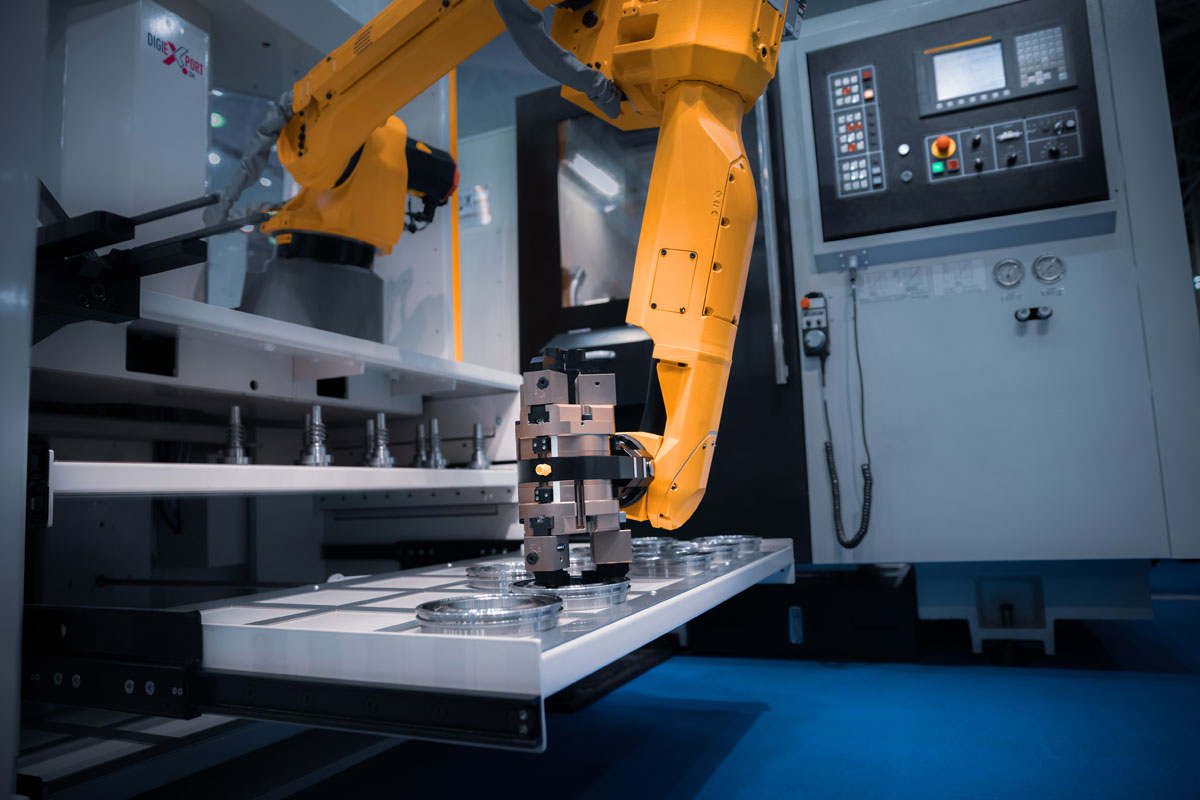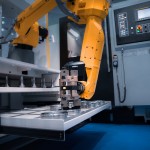The Driving Force Behind Global Progress: Machinery Manufacturing Industry
Innovative Developments in Machine Manufacturing: A Technical Perspective
![]()
Introduction: Machine manufacturing is a diverse and dynamic industry, continuously evolving to meet the demands of various sectors. Technological progress has played a vital role in shaping this industry, enabling the creation of more sophisticated, efficient, and versatile machines.
1. Advanced Materials and Composites: The use of advanced materials and composites has revolutionized machine design and manufacturing. Lightweight yet durable materials, such as carbon fiber-reinforced polymers and high-strength alloys, have enabled the development of machines with higher performance and improved energy efficiency.
2. Additive Manufacturing (3D Printing): Additive manufacturing, or 3D printing, has emerged as a disruptive technology in machine manufacturing. It allows for complex geometries, rapid prototyping, and customization of components, reducing lead times and material waste. The adoption of 3D printing has led to more agile and cost-effective manufacturing processes.
3. Smart Manufacturing and Industrial IoT: The integration of smart technologies and the Industrial Internet of Things (IIoT) has transformed traditional manufacturing facilities into interconnected and data-driven smart factories. IIoT enables real-time monitoring, predictive maintenance, and optimization of production processes, enhancing overall efficiency and productivity.
4. Robotics and Automation: Robotics and automation have been pivotal in automating repetitive tasks and enhancing precision in machine manufacturing. Collaborative robots (cobots) working alongside human operators have improved manufacturing workflows, while advanced robotics systems have enabled higher accuracy and consistency in assembly and machining processes.
5. Artificial Intelligence and Machine Learning: Machine learning algorithms and artificial intelligence (AI) have been applied to optimize various aspects of machine manufacturing. AI-driven predictive analytics helps in demand forecasting and supply chain management, while machine learning algorithms optimize manufacturing processes and quality control.
6. Energy Efficiency and Sustainability: With a growing focus on sustainability, machine manufacturers have been developing energy-efficient machines and incorporating eco-friendly practices in their production processes. Energy-efficient motors, regenerative braking systems, and greener manufacturing materials have contributed to reducing the environmental impact of machine manufacturing.
Innovative developments in machine manufacturing have significantly shaped the industry, paving the way for more efficient, intelligent, and sustainable machines. Researchers, engineers, and manufacturers must continue to collaborate and embrace these innovations to ensure a progressive and sustainable future for machine manufacturing.
![]()
What is the Machinery Manufacturing Industry Sector?
The machinery manufacturing industry is a broad sector that includes industrial machinery and equipment design, manufacture, assembly, and distribution. This sector produces machines used in various industries. Machines needed in different sectors such as automotive, aviation, agriculture, construction, food, textile, electronics, energy, and mining are produced in this sector.
Importance of Machinery Manufacturing Industry Sector:
The machinery manufacturing sector directly contributes to the development and productivity of other industries. Elements such as automation, robotic systems, and digital technologies used in modern production processes have increased the contribution of the machinery manufacturing sector to innovation and development. Therefore, it plays an important role in a country's economic growth and industrial capacity.
Global Situation of Machinery Manufacturing Industry Sector:
The machinery manufacturing industry sector is one of the cornerstones of the global economy. Many countries worldwide specialize in machinery manufacturing and are in a leading position in this field. Countries such as Japan, Germany, China, the United States of America, South Korea, and Italy are among the prominent countries in machinery manufacturing.
Technologies Used in Machinery Manufacturing Industry Sector:
The machinery manufacturing industry sector constantly keeps up with technological developments. Technologies such as the Industry 4.0 concept, artificial intelligence, big data analytics, the Internet of Things (IoT), automation, and cyber security are increasingly used in machine production. These technologies enable the developing of more efficient, innovative, energy efficient, and connected machines.
Contribution to Employment and Economy in the Machinery Manufacturing Industry Sector:
The machinery manufacturing industry provides employment to millions of people worldwide. This industry includes a variety of occupations, from engineers to workers, from designers to sales and marketing professionals. In addition, machinery exports significantly contribute to the country's economy and positively affect the foreign trade balance.
Current Developments in the Machinery Manufacturing Industry Sector:
The machinery manufacturing industry is constantly evolving to adapt to ever-changing market demands. Intensive work is carried out in areas such as sustainability, green technologies, hybrid and electric vehicles, smart production systems, and digitalization. These developments enable more environmentally friendly and efficient machines to be designed and manufactured.
The Future of the Machinery Manufacturing Industry Sector:
The machinery manufacturing industry is a strategic sector that is expected to continue to grow. With the impact of new technologies and digitalization, developing more innovative, connected, and sustainable machines is envisaged. In addition, the increase in global demand and industrial investments of developing countries increase the sector's growth potential.
As a result, the machinery manufacturing industry sector is strategically important for the world economy. Technological developments and innovations will enable the industry to progress powerfully.






